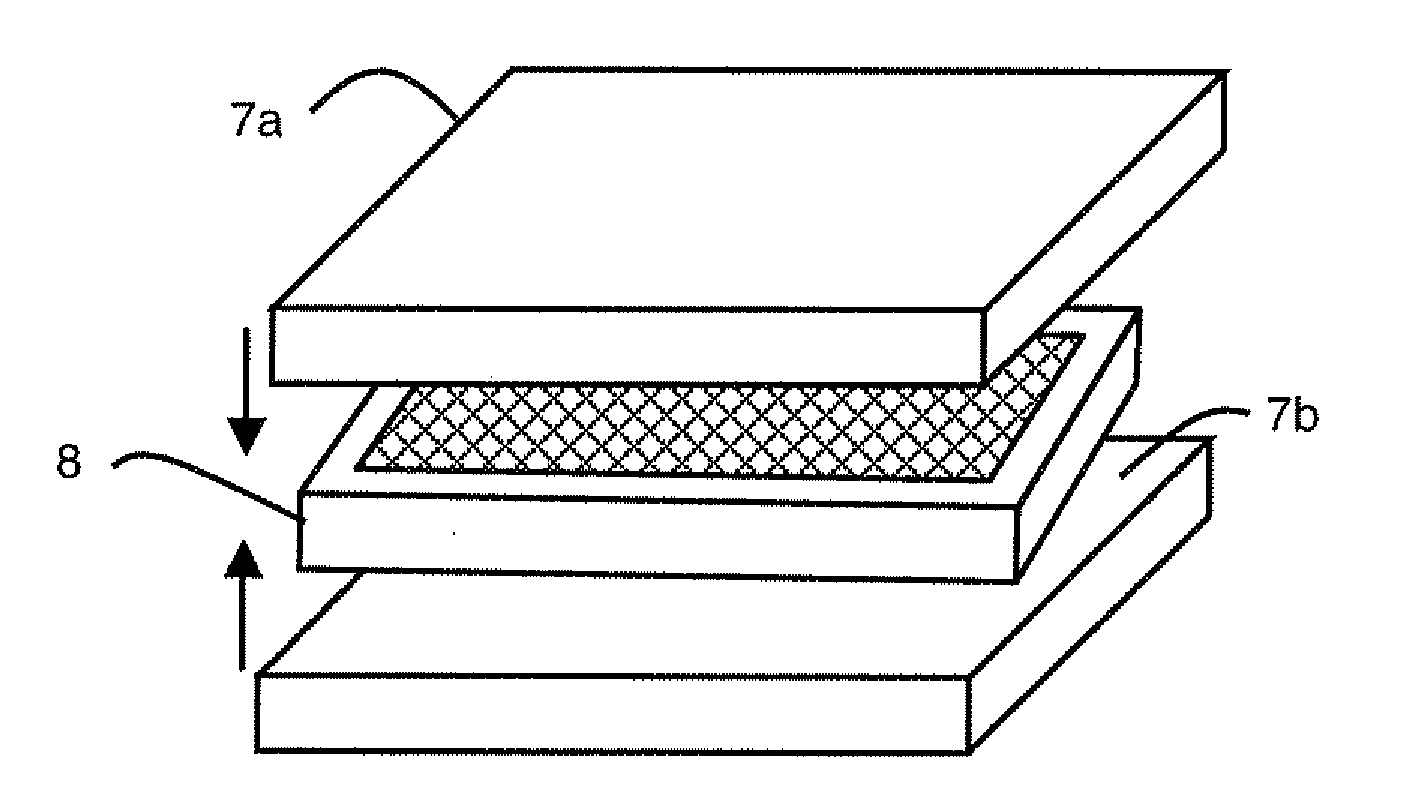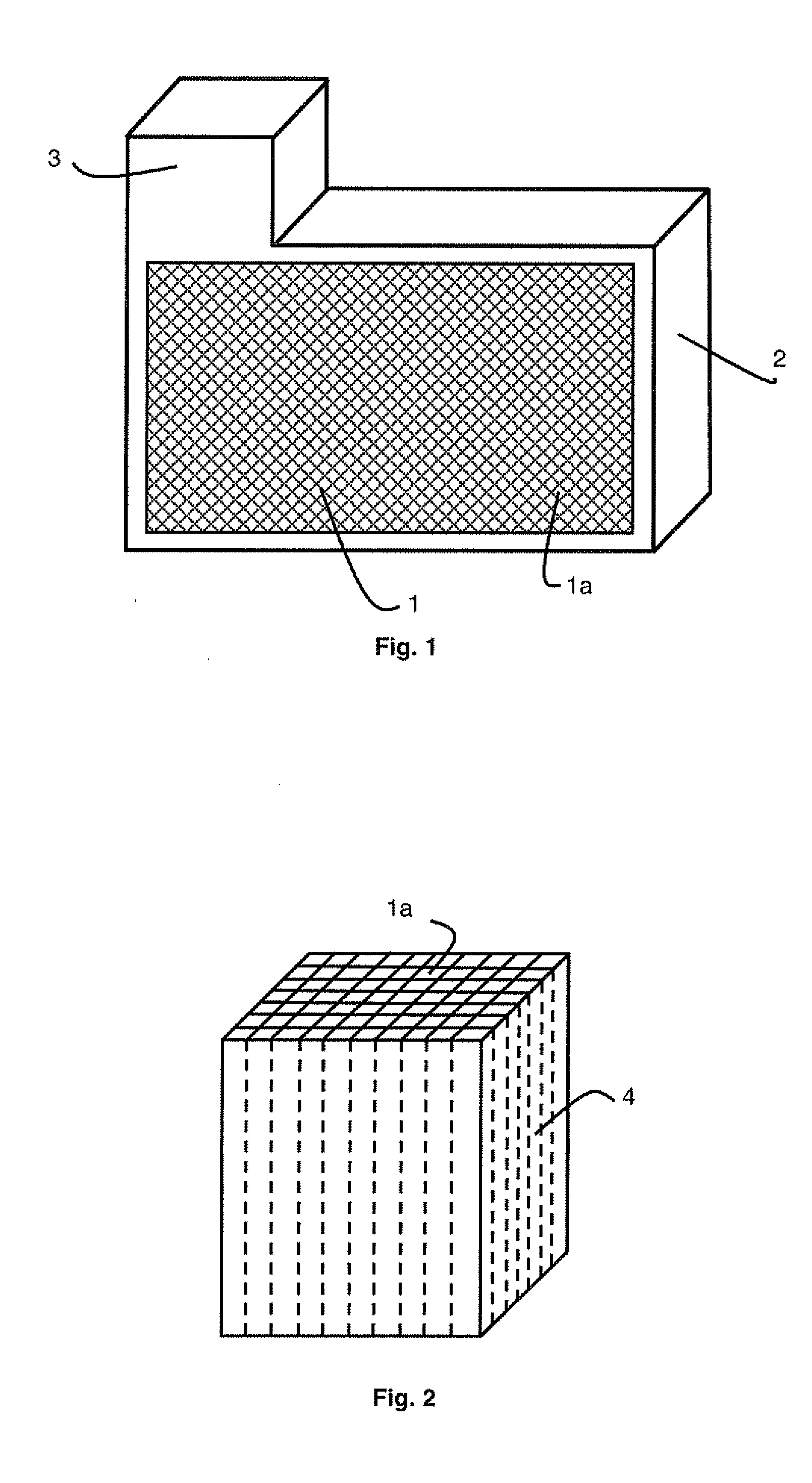Acid-lead battery electrode comprising a network of pores passing therethrough, and production method
- Summary
- Abstract
- Description
- Claims
- Application Information
AI Technical Summary
Benefits of technology
Problems solved by technology
Method used
Image
Examples
Embodiment Construction
[0026]FIG. 1 represents a particular embodiment of an electrode for a lead-acid battery according to the invention. The electrode comprises a structure 1 provided with a network of pores 1a passing through the structure, from one main face to the other. Pores 1a are perpendicular to the main faces of the grid. They are preferably all identical and separated by thin walls of low porosity (porosity: 5-10%). The cross-section of each pore 1a can be of any type: circular, hexagonal, square, rectangular, etc. Furthermore, a lead-based paste designed to form the active material associated with said electrode fills pores 1a of structure 1. The network formed in this way is preferably a regular network, for example in the form of a honeycomb.
[0027]The lateral faces of structure 1 are further covered by an outer frame 2, which is advantageously bulky, i.e. compact and as little porous as possible.
[0028]Outer frame 2 surrounding structure 1 comprises, in particular in FIG. 1, a connection par...
PUM
| Property | Measurement | Unit |
|---|---|---|
| Fraction | aaaaa | aaaaa |
| Size | aaaaa | aaaaa |
| Structure | aaaaa | aaaaa |
Abstract
Description
Claims
Application Information
 Login to View More
Login to View More - R&D
- Intellectual Property
- Life Sciences
- Materials
- Tech Scout
- Unparalleled Data Quality
- Higher Quality Content
- 60% Fewer Hallucinations
Browse by: Latest US Patents, China's latest patents, Technical Efficacy Thesaurus, Application Domain, Technology Topic, Popular Technical Reports.
© 2025 PatSnap. All rights reserved.Legal|Privacy policy|Modern Slavery Act Transparency Statement|Sitemap|About US| Contact US: help@patsnap.com



